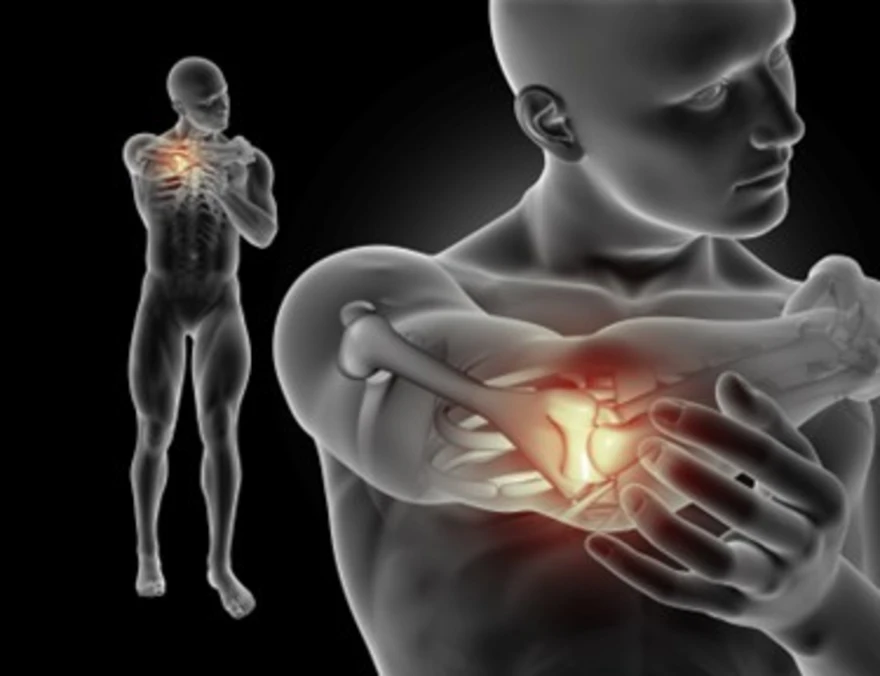Estradiol (E2) Test
Also known as: E2 (Estradiol), Serum
E2 (Estradiol), Serum Details in Brief
| Also Known As | E2 Test, 17 beta-estradiol Test |
|---|---|
| Purpose | Evaluates oestrogen levels in males and females, helps diagnose menstrual irregularities and infertility, aids in assessing ovarian function and menopause status |
| Preparation | High biotin dose (>5 mg/day) should be avoided at least 8 hrs before blood collection. Patients treated with Mifepristone should wait two weeks for testing. |
| Fasting | Not Required |
| Reporting Time | After 6 hrs |
| Cost | 700 |
What is an Estradiol Test (E2) - Serum?
An estradiol test (E2) - serum is a laboratory test that measures the amount of estradiol in your blood serum. Estradiol is the most potent and common type of oestrogen, a primary female sex hormone that also plays an important role in male health.
This test helps detect and diagnose hormonal imbalances, fertility issues, menstrual irregularities, and various conditions affecting your reproductive health. The test uses a blood sample collected from a vein in your arm.
What Does the Estradiol Test (E2) - Serum Measure?
The test measures estradiol levels to help doctors understand your hormonal health and diagnose various conditions:
• Assess ovarian function - Evaluates how well a woman's ovaries are working, which is crucial for fertility and menstrual health
• Investigate menstrual problems - Finds the cause of irregular periods, absent periods, or abnormal vaginal bleeding
• Monitor fertility treatments - Tracks follicle development in the ovaries during treatments like In Vitro Fertilisation (IVF)
• Diagnose puberty issues - Determines the reason for early or delayed puberty in children
• Evaluate menopausal status - Helps confirm if a woman is approaching or has gone through menopause
• Monitor hormone replacement therapy - Checks if the dosage of oestrogen therapy is appropriate
• Investigate male hormone imbalances - Helps diagnose conditions like enlarged breast tissue in men
• Detect hormone-producing tumours - High levels can sometimes indicate tumours on the ovaries or testicles
Estradiol Test (E2) - Serum: Who Needs It and Why It's Done
What Symptoms May Call for an Estradiol Test (E2) - Serum?
Your doctor might recommend this test if you're experiencing symptoms that suggest abnormal estradiol levels:
- Irregular, very heavy, or completely absent menstrual periods
- Difficulty becoming pregnant despite trying
- Abnormal vaginal bleeding, especially after menopause
- Hot flashes, night sweats, and vaginal dryness
- Enlarged breast tissue in men
- Erectile dysfunction or reduced interest in intimacy
- Signs of very early puberty in children
- Delayed puberty in teenagers
Who should get an Estradiol Test (E2) - Serum?
Several groups of people may benefit from this test:
• Women with fertility issues or those undergoing fertility treatments like IVF
• Women experiencing irregular menstrual cycles or abnormal bleeding
• Individuals undergoing hormone replacement therapy to monitor treatment effectiveness
• Children showing signs of very early or delayed puberty
• Men with symptoms like enlarged breasts (gynaecomastia)
• Patients with suspected tumours of the ovaries, testicles, or adrenal glands
Why is an Estradiol Test (E2) - Serum done?
This test provides valuable insights into your hormonal health, helping doctors diagnose underlying conditions, monitor treatment effectiveness, and make informed decisions about your care.
Importance of an Estradiol Test (E2) - Serum
The estradiol test is clinically significant because estradiol affects many vital body functions, including reproductive health, bone strength, and cardiovascular function, in both women and men. For diagnosis, the test helps identify conditions like ovarian failure, hormone-producing tumours, or puberty disorders.
For treatment guidance, estradiol levels help doctors determine optimal timing for fertility procedures, adjust hormone replacement therapy dosages, and monitor your response to various treatments. This test is essential for understanding your overall hormonal balance and ensuring you receive appropriate medical care.
Estradiol Test (E2) - Serum Booking & Reports – Metropolis Healthcare India
How to Book an Estradiol Test (E2) - Serum?
- Simple Online Booking
Booking can be done through the Metropolis Healthcare App or website. Select Estradiol Test (E2) - Serum, choose a convenient time slot, and provide your address for a blood test at home. You can also visit the nearest Metropolis Lab if you prefer to give the sample directly at the lab. - Safe Home Sample Collection
Our trained phlebotomists ensure the timely collection of your sample while strictly following all safety and hygiene protocols. - Sample Tracking Updates
Stay informed at every step. From collection to testing, you can track your sample directly through the Metropolis Healthcare website. - Accurate Laboratory Testing
Your sample is processed at our NABL & CAP-accredited laboratories, where expert technicians ensure accurate results. - Quick & Easy Reports
Receive your test reports promptly via email, WhatsApp, or by downloading them directly from the Metropolis Healthcare website or app.
Is home sample collection for the estradiol test (E2) - serum available near you?
Yes, home blood sample collection for the estradiol test is available across India through Metropolis Healthcare. Our trained phlebotomists visit your doorstep at your preferred time, ensuring safe and hygienic blood collection. This convenient service eliminates the need to travel to a lab, making hormone testing accessible from the comfort of your home.
How long does it take to get an estradiol test (E2) - serum report?
Reports are usually available within 6 hours once the sample reaches the lab.
Note: Reporting time may vary based on your location.
Where can I see or get estradiol test (E2) - serum results?
Test results from Metropolis Healthcare can be accessed through multiple convenient channels. You can log in to the Metropolis website using your credentials or use the Metropolis Healthcare App to view and download your reports. Additionally, test reports are sent via email or WhatsApp, and you also have the option to collect a physical copy directly from the lab.
Interpreting Estradiol Test (E2) - Serum Results
What Your Estradiol Test (E2) - Serum Results May Indicate
|
Parameter |
Reference Range |
High Levels May Indicate |
Low Levels May Indicate |
|
E2- Estradiol level |
Both: 11 - 12 Years: <= 44 pg/mL Both: 12 - 13 Years: <= 42 pg/mL Both: 13 - 14 Years: <= 136 pg/mL Both: 14 - 15 Years: <= 196 pg/mL Both: 15 - 16 Years: 26 - 192 pg/mL Both: 16 - 17 Years: 14 - 124 pg/mL Both: 17 - 19 Years: 17 - 184 pg/mL Menstrual Cycle Follicular phase: 12.4-233 pg/mL Ovulation Phase: 41-398 pg/mL Luteal phase: 22.3-341 pg/mL Post Menopausal Females: 5-138 pg/mL Pregnant women: 1st Trimester: 154-3243 pg/mL 2nd Trimester:1561-21280 pg/mL 3rd Trimester: 8525-30000 pg/mL |
Tumour of ovaries/adrenal glands/testicles, cirrhosis, early puberty in girls, delayed puberty in boys |
Primary ovarian insufficiency, menopause, Turner syndrome, eating disorders, polycystic ovary syndrome |
Conditions that May Affect Estradiol Test (E2) - Serum Accuracy
Several factors can influence your estradiol test results and should be discussed with your doctor:
• Medications - Birth control pills, hormone replacement therapy, and certain other medications can directly affect estradiol levels
• Biotin supplements - High-dose biotin (more than 5 mg per day) supplements can interfere with the test; avoid for at least 8 hours before blood draw
• Mifepristone treatment - Patients should not be tested for E2 for up to two weeks after treatment
• Menstrual cycle timing - Results vary significantly depending on the phase of your cycle
• Dehydration - Severe dehydration can make blood more concentrated, potentially affecting results
• Certain medical conditions - Liver disease or kidney problems may impact hormone metabolism.
How is an Estradiol Test (E2) - Serum Done?
The Estradiol Test involves a simple blood collection procedure:
• The healthcare professional cleans an area on your arm, usually the inside of the elbow
• A small needle is inserted into a vein to collect blood into a special gel vacutainer
• Approximately 3 ml of blood is collected for the test
• The blood sample is sent to our pathology lab
• The entire blood collection process takes only a few minutes
How Should You Prepare for an Estradiol Test (E2) - Serum?
Preparing for your Estradiol Test is straightforward with minimal requirements:
• No fasting required - You can eat and drink normally before the test
• Avoid high-dose biotin - Stop taking biotin supplements (more than 5 mg/day) at least 8 hours before blood collection
• Inform about medications - Tell your doctor about all medications, birth control pills, hormone therapy, and supplements you're taking
• Timing consideration - For premenopausal women, your doctor may schedule the test for a specific day of your menstrual cycle
• Stay hydrated - Drink adequate water before the test to avoid dehydration
• Medical history - Provide information about your age, last menstrual period, and relevant medical history
Diseases that an Estradiol Test (E2) - Serum Can Help Detect
The Estradiol Test can help identify various health risk conditions:
• Primary ovarian insufficiency - When the ovaries fail to function normally
• Polycystic ovary syndrome (PCOS) - A hormonal disorder affecting women of reproductive age
• Menopause - Natural decline in reproductive hormones
• Turner syndrome - A genetic condition affecting females
• Hormone-producing tumours - Tumours of the ovaries, testicles, or adrenal glands
• Gynaecomastia - Enlarged breast tissue in men
• Precocious puberty - Early onset of puberty in children
• Delayed puberty - Late onset of puberty in adolescents
• Infertility issues - Problems with conception and reproductive health
Estradiol Test (E2) - Serum/Packages that You Can Book With Metropolis Healthcare
Metropolis Healthcare offers a comprehensive testing option to evaluate your hormonal health:
|
Test/Package Name |
Purpose/Highlights |
|
Measures another type of oestrogen, useful during pregnancy monitoring. |
|
|
Comprehensive panel to assess menopausal status and hormone levels |
|
|
Measures estrone levels, another important oestrogen hormone |
Estradiol Test (E2) - Serum Prices in Different Cities
The cost of an Estradiol Test (E2) - Serum may vary depending on your location. Here's a table showing the approximate prices in different cities.
|
City |
Price (₹) |
|
₹500 to ₹800 |
|
|
₹500 to ₹800 |
|
|
₹500 to ₹800 |
|
|
₹500 to ₹800 |
|
|
₹500 to ₹800 |
|
|
₹500 to ₹800 |
Reference:
Wallach’s interpretation of diagnostic tests, Ed11, 2020
Henry's Clinical Diagnosis and Management by Laboratory Methods. 23rd ed; 2017.
Tietz fundamentals of clinical chemistry 6th edition. Burtis CA, Ashwood ER, Bruns DE, 2008.
E2 (Estradiol), Serum Price
Metropolis Healthcare is a leading diagnostics centre and pathology lab in India equipped with the latest state-of-the-art technologies that provides the E2 (Estradiol), Serum with a clear pricing structure.
The E2 (Estradiol), Serum Price in Mumbai is ₹ 700 .
We are committed to deliver accurate and quality results from the best labs in India with complete transparency regarding test cost and turnaround time. No matter where you are, we strive to offer patients high-quality service that is affordable and accessible.
Frequently Asked Questions
For premenopausal women being evaluated for fertility, the test is often timed to day 2, 3, or 4 of the menstrual cycle to assess baseline hormone levels. For other purposes, your doctor will advise if specific timing is important.
No, fasting is not required for the estradiol test. You can eat and drink normally before the test unless your doctor has ordered additional tests that require fasting.
Severe dehydration can make your blood more concentrated, potentially leading to slightly inaccurate results. It's always good practice to stay well-hydrated before any blood test for optimal accuracy.
No special diet is needed before the test. However, inform your doctor about all medications, supplements, and herbal remedies you're taking, as birth control pills, hormone therapy, and certain other medications can directly affect your estradiol levels and test results.
The procedure involves cleaning an area on your arm, inserting a small needle into a vein, and collecting blood into a vial. The entire process takes only a few minutes with minimal discomfort.
The risks are very low, similar to any standard blood test. You might experience slight pain, minor bruising, or swelling at the puncture site. Serious complications like infection are extremely rare.
Normal estradiol levels vary significantly based on age, gender, and menstrual cycle phase. For menstruating women, levels range from 12.4-233 pg/mL during the follicular phase to 41-398 pg/mL during ovulation. Post-menopausal women typically have levels of 5-138 pg/mL. Your doctor will interpret results based on your specific situation.
The estradiol test is also commonly known as the E2 Test or 17 beta-estradiol Test.
Ratings & Reviews (0)
Why Metropolis?
Metropolis has a team of 200 senior pathologists and over 2000 technicians delivering diagnostic solutions in the areas of routine, semi specialty and super specialty domains like Oncology, Neurology, Gynaecology, Nephrology and many more.
We offer a comprehensive range of 4000+ clinical laboratory tests and profiles, which are used for prediction, early detection, diagnostic screening, confirmation and/or monitoring of the disease.





















 WhatsApp
WhatsApp